Introduction to Computer Science
In an age of technological wonder, computer science stands as the cornerstone of innovation and progress. It's the driving force behind the seamless integration of hardware and software that has transformed every aspect of our lives, from smartphones to complex simulations, from communication to commerce, from entertainment to education. In this article, we'll explore the mysterious world of computer science, uncovering its fundamental concepts, historical roots, and profound impact on our world. Inspired by my own journey of curiosity, I'll explain this field to you in a simple and exciting way. If you're ready, let's get started!
The Essence of Computer Science
Computer science, at its core, is the systematic study of algorithms, data structures, and the principles that govern the design and function of computers. It's a broad discipline, spanning from theoretical foundations to practical applications. Computer scientists are the architects of the digital universe, creating the tools and techniques that power the devices and software we use daily. Working on a software project, I realized how broadly influential this discipline is; every line of code is like a brick to solve a problem.
Historical Evolution
The origins of computer science date back to ancient times, when humans developed ingenious mechanisms for computation and data manipulation. However, the fundamental concepts of modern computer science began to take shape in the 20th century.
The Birth of Calculating Machines
The invention of mechanical calculators in the 17th century marked the first steps toward automatic calculation. Charles Babbage's Analytical Engine designs in the 19th century laid the foundation for modern computers, but the technology of the time failed to realize this vision. It's fascinating to think that Babbage's ideas sowed the seeds for the systems we use today!
Turing and the Birth of Theoretical Computer Science
The 20th century was marked by Alan Turing's groundbreaking work on computability and the Turing machine. His ideas laid the foundation for theoretical computer science, which aims to understand the limits and capabilities of computation. Turing's contributions to breaking the German Enigma code in World War II demonstrated the real-world impact of computational thought. While working on a cryptographic project, I felt the power of Turing's legacy.
Digital Revolution
Digital computers emerged in the mid-20th century. The Electronic Numerical Integrator and Computer (ENIAC), developed in the 1940s, was one of the first programmable computers. This marked the beginning of practical computer science and led to rapid advances in hardware, software, and networking technologies.
Fundamental Concepts of Computer Science
Algorithms and Data Structures
Algorithms are step-by-step instructions for solving problems, while data structures are methods for organizing and storing data efficiently. These concepts, at the heart of computer science, determine how information is processed by software. While developing a sorting algorithm, I experienced how the right data structure can improve performance.
Programming Languages
Programming languages bridge the gap between human ideas and machine execution. They allow us to communicate with computers through syntax and semantics. Languages like Python, Java, and C++ are the building blocks of software development. I discovered the power of these languages in my first Python project, writing a data analysis tool.
Computer Architecture and Organization
Computer architecture studies the design of the hardware components of a computer system, such as processors, memory, and input/output devices. Organization focuses on how these components interact to execute programs effectively. In a simulation project, understanding how hardware supports software gave me a new perspective.
Theory of Computation
This branch of theory explores what is computable and what isn't. Automata theory, formal languages, and complexity theory help us understand the theoretical limits of computation. These abstract concepts allowed me to push the boundaries on an algorithm design project.
Artificial Intelligence and Machine Learning
Artificial Intelligence (AI) and Machine Learning (ML) are among the most advanced fields of computer science. AI aims to create machines that mimic human intelligence, while ML aims to develop algorithms that enable computers to learn from data. Classifying objects with ML in an image recognition project was an incredible experience.
Real World Impact
The impact of computer science on our lives is immeasurable. From smartphones to search engines, medical imaging to space exploration, the discipline has transformed industries around the world.
Communication and Connection
The internet, a product of computer science, has redefined communication, information access, and commerce. Social media platforms, email, and video conferencing are just a few examples of how it brings people closer together. While developing a web-based application, I felt the power of this connection.
Health and Medicine
Computer science plays a key role in medical diagnosis, imaging, and drug discovery. Advanced algorithms analyze medical images, find patterns in patient data, and accelerate research by simulating drug interactions. In a healthcare project, I contributed to improving patient outcomes through data analysis.
Fun and Games
The entertainment industry is evolving with computer science innovations. Video games, virtual reality experiences, and streaming platforms deliver immersive experiences using complex algorithms and cutting-edge hardware. While developing my own game prototype, I saw how these technologies spark creativity.
Environmental Sustainability
Computer science also contributes to environmental protection. Through simulations and data analysis, researchers can model environmental changes, track animal populations, and optimize resource management strategies. In one environmental project, I developed a more sustainable solution through data analysis.
Conclusion
In an age where technology is seamlessly woven into the fabric of daily life, computer science stands as a guiding force for these transformative changes. From mechanical computing machines to the sophisticated algorithms of artificial intelligence, this discipline continues to shape our world. Looking to the future, the role of computer science in innovation, problem-solving, and progress will only expand, ensuring that the digital universe remains a field of infinite possibilities. My own computer science journey has developed both my technical and creative side and demonstrated that there are no limits to imagination in this field!
What computer science projects have you worked on? Did you have an interesting experience? Share it in the comments so we can discuss it together! Check out my blog or contact me for more tips!
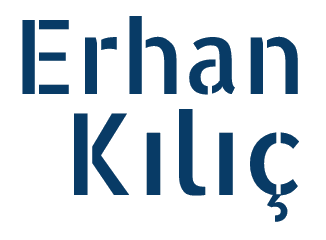
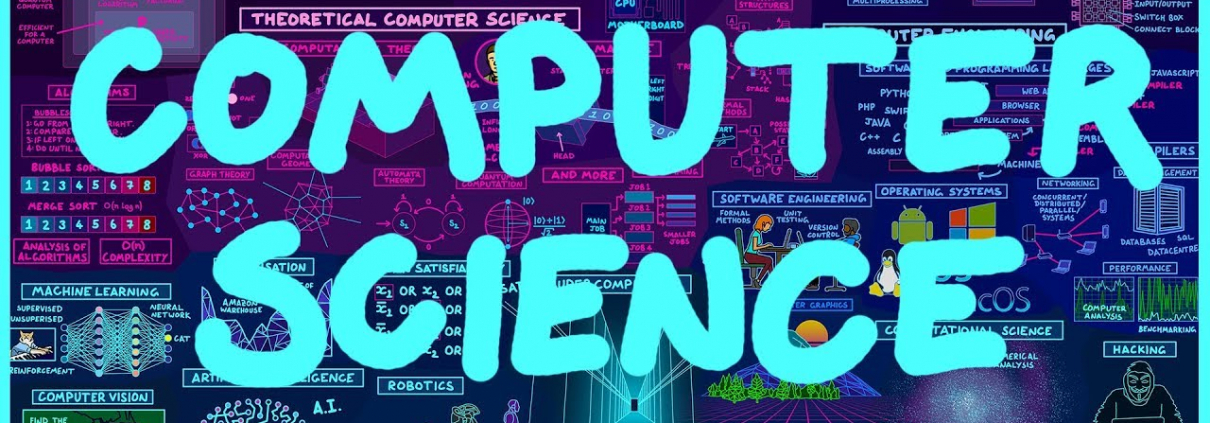
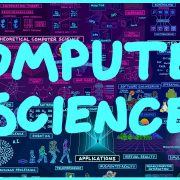


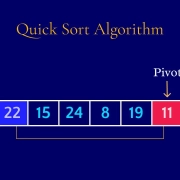

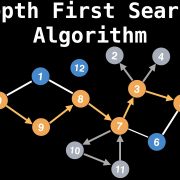
[…] While computer science fundamentals are often perceived as a field reserved for software developers or technology experts, it's actually a discipline anyone can learn and integrate into their daily lives. At its core lies the approach to identifying, analyzing, and effectively solving a problem. This provides benefits in many areas, from acquiring new skills to bringing an analytical perspective to everyday problems. If you're looking to embark on a journey through the fundamentals of computer science, this article is for you. We'll explain the fundamental concepts for beginners and deepen the topic with practical examples. […]
[…] is a core operation in computer science, enabling us to locate specific elements within a dataset efficiently. Among the plethora of search […]
[…] algorithms are a fundamental concept in computer science and mathematics, and generally involve making locally optimal choices at each step […]
[…] In the world of computer science, data is at the heart of every computation. Data comes in a variety of forms, and computer scientists and programmers use data types to work with it effectively. Data types define the nature of data and specify what values can be stored and what operations can be performed on them. Understanding data types is fundamental to writing efficient and error-free code. In this article, you'll explore all the fundamental data types in computer science. […]